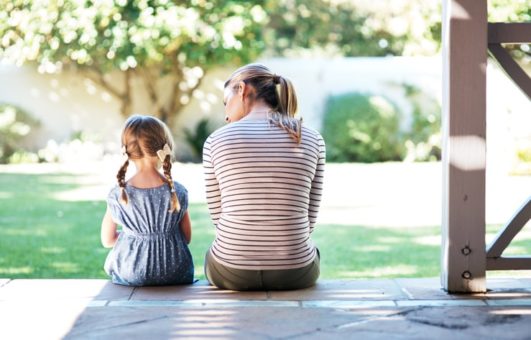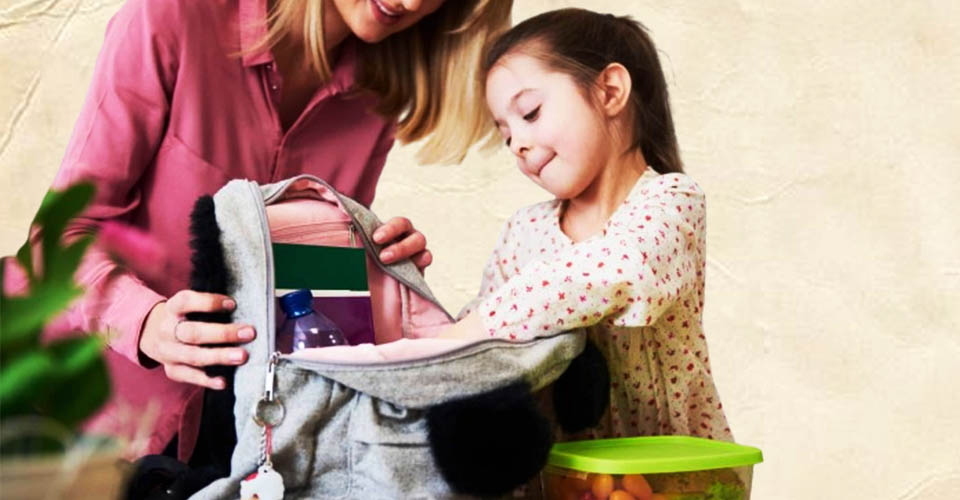As parents, our most important objective is to bring up children who are not only intelligent, but also kind, efficient, and reliable. This involves teaching responsibility to kids.
Responsibility means being answerable for your actions, keeping your word, and making sound judgments.
Why does it have to be so? The reason is that when children are taught responsibility, they turn into confident adults who can be trusted. They acquire skills of looking after themselves and others as well as the consequences of their choices on other people around them.
This article will discuss why teaching responsibility to kids is important, its advantages, and some practical suggestions you can use for teaching responsibility to kids. We will examine activities such as chores, games, and outdoor events among others, and even ways of guiding them about money matters.
Such activities are helpful as well as enjoyable for both of you.
Why Raising A Responsible Child Is Important?
Responsibility is a virtue, but it is one of the necessary skills that build a successful, satisfying, and ethical life.

That’s why teaching responsibility to kids is important:
1. Growing up as an Individual
Teaching responsibility to kids from a tender age helps them grow up with self-discipline and independence.
When children learn to take control over their actions and decisions they become self-sufficient and confident in their abilities. This self-belief not only raises their self-worth but also equips them with tools to confront challenges in life.
2. Social and Emotional Intelligence
Responsible kids are likely to be more sympathetic and socially sensitive. They understand how their actions matter towards others hence promoting kindness and cooperation. By raising a responsible child for what they do, they learn to observe other people’s privacy while developing healthy relationships.
3. Academic Success and Career Achievement
Childhood responsibility lays the foundation for academic performance as well as success in one’s career path.
If a child learns how to be accountable for his education process, he/she will manage to meet his/her deadlines on time and keep his/her promises regardless of the difficulties involved among other things.
These attributes of raising a responsible child easily turn out in their professional lives where accountability plus reliability are highly valued.
4. Life Skills Forever, Financial Literacy
Teaching kids responsibility early on enables them to learn life basics such as managing time well, organizing themselves properly, and understanding financial matters among others at an early stage of development.
Time management teaches youngsters how to juggle between school work, co-curricular activities besides social life hence preparing them for forthcoming adult complications.
5. Contributions toward Society
When responsible children grow up they become responsible citizens who are ready to participate even more actively in various community projects such as volunteering or voting activities, unlike others who just sit back because it doesn’t concern them.
By accepting the importance of society’s role; contribute positively thus making it a better and fairer place.
One of the greatest things one can give their child is raising a responsible child. This sets them on the path to success, fulfillment, and being good members of society. By instilling this value in your child, you are molding future leaders, creators, and caring citizens of tomorrow.
Read More: Raising a Polite Child: A Comprehensive Guide for Parents and Caregivers
How To Teach Responsibility To A Child?
Teaching responsibility to kids is one of the most rewarding aspects of parenting. Here are some effective strategies on how to teach responsibility to a child:

1. Be a role model
Children learn much from observing adults in their lives. Show what being responsible looks like through your actions and decisions.
Learning how to teach responsibility to a child includes managing family chores, keeping promises being accountable at work, let your child observe how you handle responsibilities.
2. Give Chores According to Age
Assigning children tasks helps them appreciate what it means to be part of the community and guides them on becoming responsible individuals. Ensure that they correspond with their age group and abilities.
3. Create Regularity and Orderliness
A day-to-day routine enables children to grasp the notion of accountability by giving them a predictable pattern. It should consist of times set aside for homework completion etcetera.
4. Foster Decision Making
As children make choices, they become aware that there are implications that follow every decision made on earth thereby learning about accountability as well. Let them have an opportunity to decide over various matters within their normal life.

Making decisions on your own is one of the best ways to teach responsibility to kids.
5. Teach Them About The Significance Of Consequences
Making kids understand the consequences associated with an action is essential for how to teach responsibility to a child.
6. Foster an Independent Mindset
This will make your child feel responsible for his or her work and decisions, thereby boosting their self-esteem and problem-solving skills.
Let them blunder and learn from their errors instead of intervening to fix everything. Provide guidance and encouragement while still allowing them the opportunity to solve their problems independently.
7. Practice Positive Reinforcement
By praising your kid or offering rewards, you can help motivate him or her to take control as well as promote good behavior.
Rather than just focusing on the result, acknowledge the effort they put in as well as their persistence. For instance, reward consistency in fulfilling household duties with extra playtime or a small treat.
8. Have Clear Guidelines and Expectations
Explain clearly the expectations you have for your children as well as rules that should be observed by all means possible. By doing this, your child comprehends what is demanded hence knowing how to behave rightly. This helps prevent confusion when applying rules and expectations.
Some of these home-based regulations may be contributed by older children themselves which increases their commitment to following them through.
9. Teach Financial Literacy
Helping a child learn money management is an essential part of teaching responsibility to kids. Pay them weekly pocket money so that they can grasp what it means to budget for savings, spending, and giving back.
Urge them to save up for specific items or experiences they desire most.
10. Encourage Societal Participation
Engage your children in charitable activities such as volunteering at a homeless shelter so they understand how valuable it is to give back to the community.
Some examples include cleaning up neighborhoods or working at food banks—mention how others are helped out by this kind of effort alongside its impact on the entire region or town.
Teaching responsibility to kids takes time and requires patience; it is not something that happens overnight but rather a process that demands continuity throughout periods of growth into adult life stages characterized by full independence.
By doing this, one is molding their child into a responsible, independent and caring individual who can handle whatever life throws at them.
Read More: Raising A Child As A Single Dad: 10 Helpful Tips!
Fun Activities For Teaching Responsibility To Kids
Teaching responsibility to kids doesn’t have to be a bore! Make learning fun by combining it with games.

Here are some creative and effective activities for teaching responsibility through play and daily routines.
1. Chore Charts and Reward Systems
Come up with colorful charts that contain things children must do in a given day like making their bed, tidying their rooms, or feeding pets. They can track these tasks using stickers or markers.
Children who use this chart can therefore see the great value of contributing to domestic chores as well as personal achievement when they look at a sticker-filled chart or one that has stars all over it.
This also involves reward systems where children get points or tokens for every task accomplished thus further motivating them and reinforcing positive behavior.
2. Role-Playing Games
Another interactive way of teaching responsibilities is through role-playing games. Through playing “house”, “store” or having stuffed animals replaced by pets, children learn various roles and responsibilities imaginatively.
These games allow young ones to safely experience the consequences of their actions whilst also teaching them about accountability and decision-making.
3. Gardening Together
Outdoor events such as gardening and scavenger hunts in nature offer useful lessons on responsibility too. Planting and nurturing a garden teaches kids about taking care of living things along with being consistent while looking after plants.
Nature scavenger hunts involve exploration, observation, respect for the environment (by picking up trash) as well as identification of different types of plants and animals.
4. Cooking and Meal Preparation
Cooking is another real-life example of how children can learn responsibility while gaining essential life skills.
You can help your child plan meals, choose recipes, buy ingredients from the store, and cook alongside them during preparation time; this process teaches them about nutrition among other things involved in food preparation too.
Therefore, even though it is simple enough for any child to understand proper nutrition better than other topics like cooking terms; it should still be known that this too is intended to promote the sense of responsibility in giving assistance as well as contributing towards family meals.
5. Financial Responsibility Games
Children can learn about money management and decision-making from games such as “bank” or “store” which teach them financial responsibility. By pretending to have a bank or store where they can earn, save, and spend play money, kids acquire valuable lessons on how to budget for a responsible choice.
Incorporating these fun activities into your child’s routine not only teaches them about responsibility but also strengthens your bond through shared experiences and positive reinforcement.
With fun learning that resonates with real-life situations, you can lay a foundation for their responsibility and independence.
Read More: 10 Proven Methods for Teaching Financial Literacy to Teens!
A Word From Mind Family
As parents, we understand the profound impact of teaching responsibility to our children. It’s not just about completing chores or managing tasks; it’s about nurturing qualities that shape their character and prepare them for the complexities of life.
At Mind Family, we believe that fostering responsibility in children is a journey of discovery and growth. It’s about equipping them with the tools and mindset to navigate challenges with confidence and integrity.
Together, through patience, consistency, and creativity, we can inspire our children to become responsible, compassionate individuals who make a difference in the world.
Let’s continue to nurture these qualities in our children, knowing that by doing so, we’re shaping future leaders and building a brighter tomorrow, one responsible decision at a time.
Frequently Asked Questions (FAQs)
1. Why raising a responsible child is important?
Raising a responsible child fosters independence, empathy, and prepares them for success in academics, careers, and relationships.
2. How to teach responsibility to a child?
Teach by example, assign age-appropriate chores, create routines, encourage decision-making, teach consequences, and use positive reinforcement.
3. What are some activities for teaching responsibility to kids?
Use chore charts, role-playing games, cooking together, gardening, financial simulations, and community service to make learning responsibility fun and engaging.












Leave a Reply